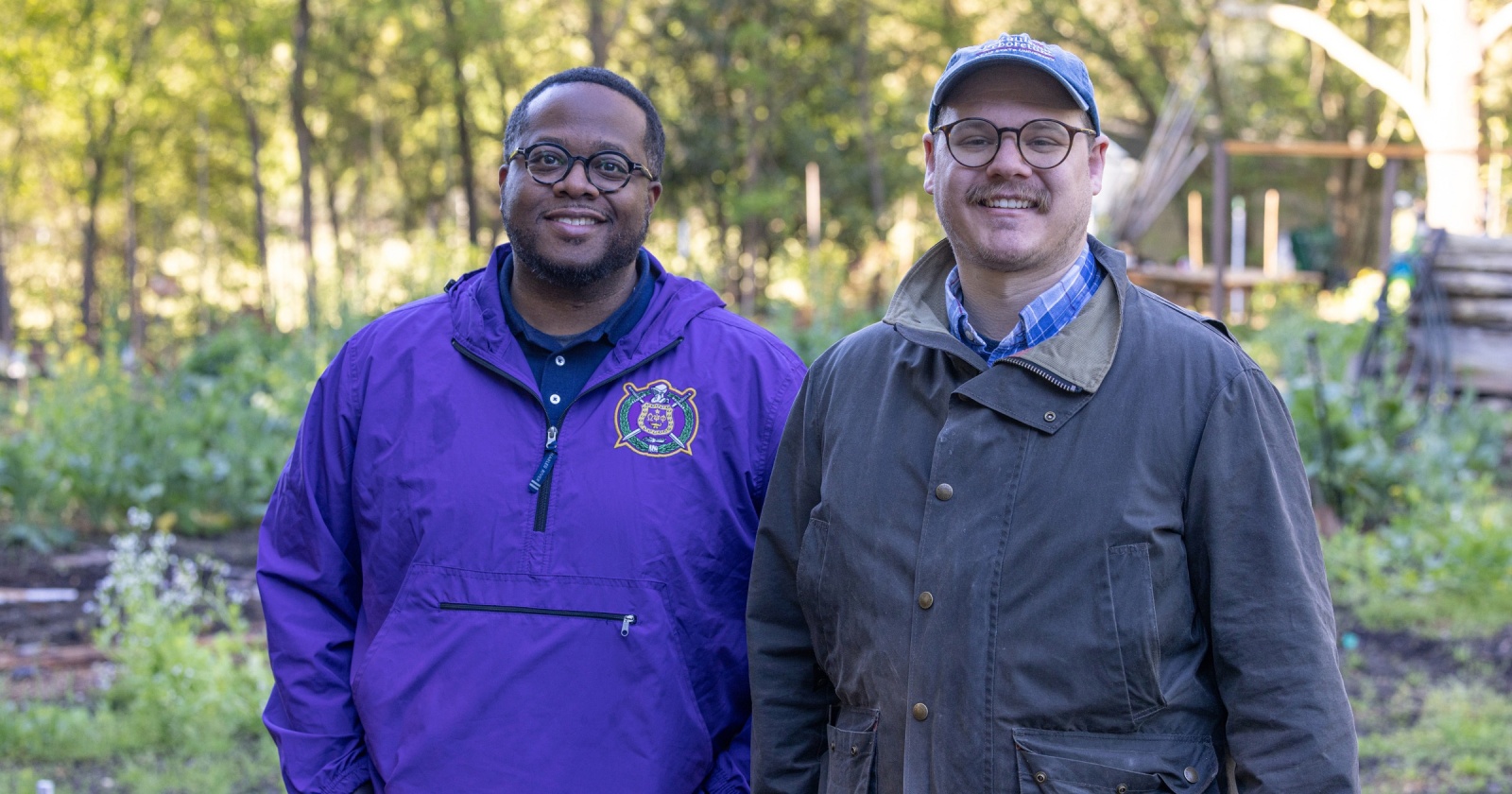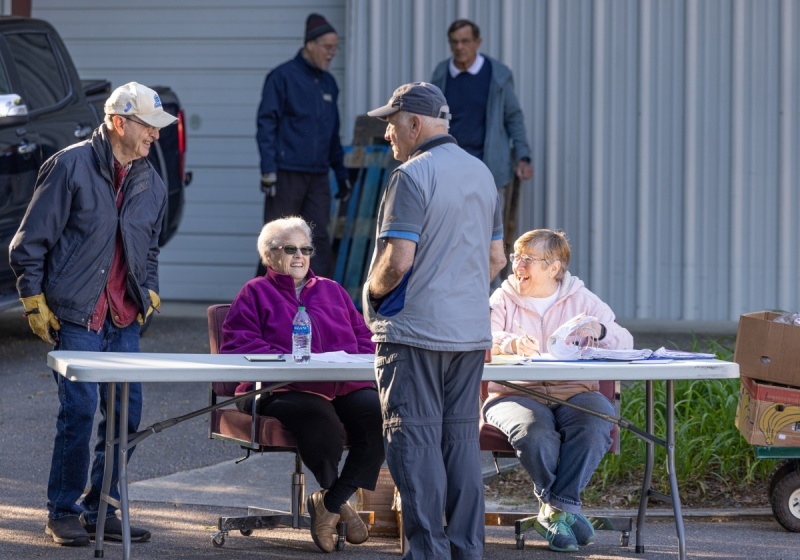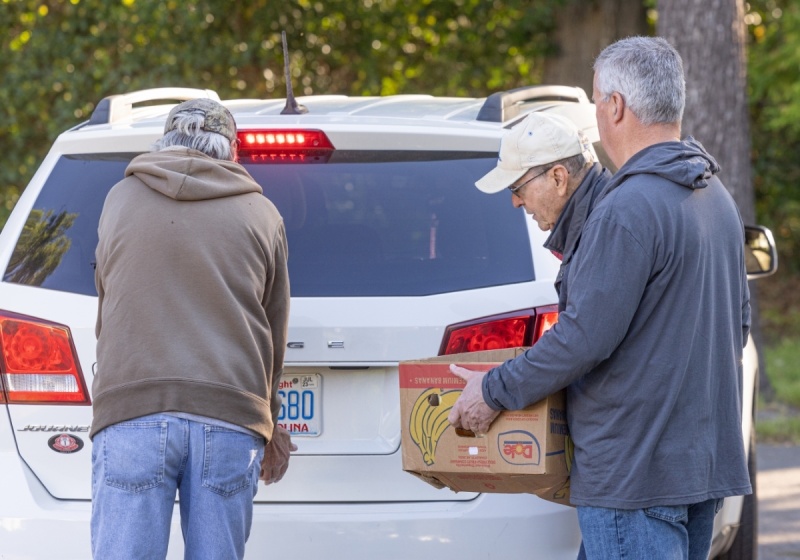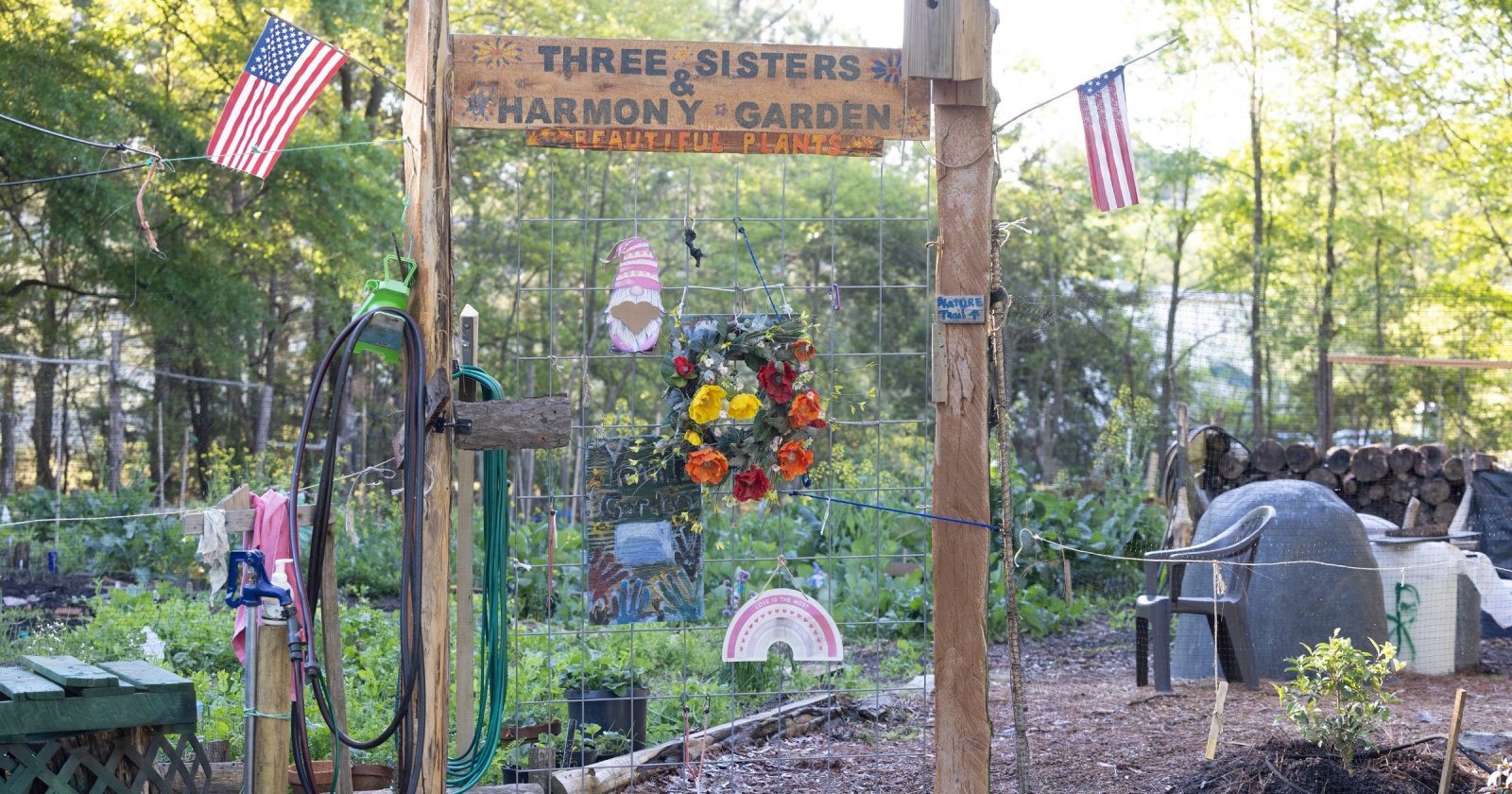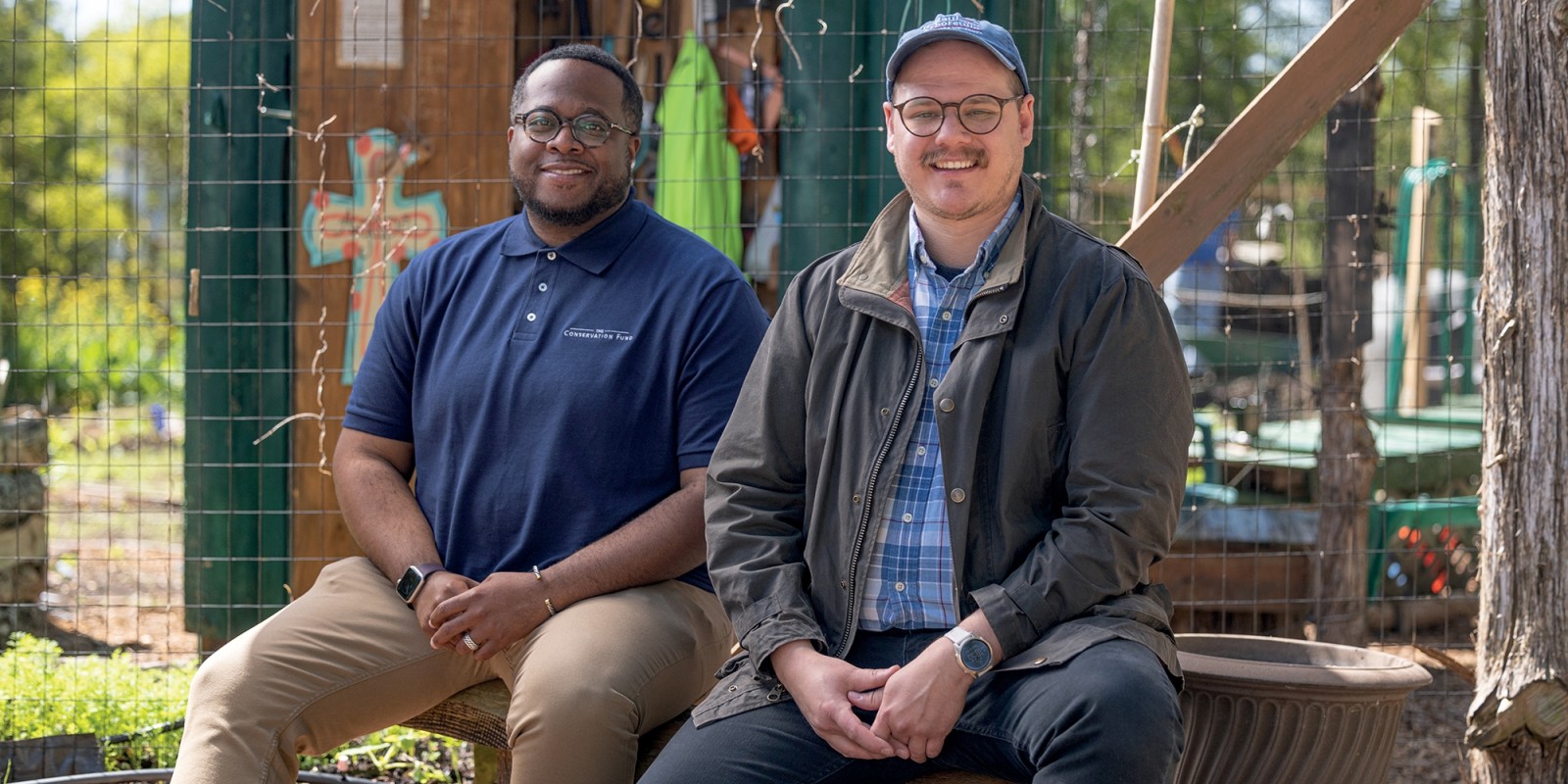
Growing and
Gathering
Combining faith and food, small congregations across North Carolina are strengthening connections to their communities, thanks to a program from The Conservation Fund’s Resourceful Communities initiative. This church-powered food systems project empowers rural Methodist churches to serve and uplift communities beyond Sunday services.
 | | | | | |
| | | | | | Matthew Rouse
Faith and Food Coordinator, The Conservation Fund
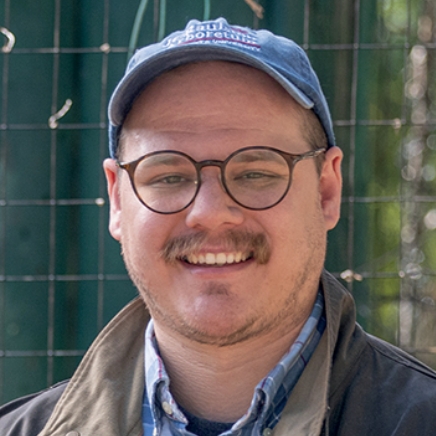 | | | | | |
| | | | | | Aaron Hayworth
Faith and Food Coordinator, The Conservation Fund
Faith and Food Coordinator Aaron Hayworth helps participating parishes receive training, networking, one-on-one coaching and small grants for promising projects that address local food insecurity and nutrition challenges. A three-year, $1.9 million grant from the Endowment supports the work, which focuses on increasing access to healthy foods, growing produce or protein, providing healthy eating and cooking classes, and generating revenue, jobs and other support for farmers.
These are really passion projects, the people involved spend many hours in this work, and they know exactly who they’re helping – their neighbors.
Aaron Hayworth | Faith and Food Coordinator, The Conservation Fund
Because many rural churches are quite small, Faith and Food’s support can go a long way. “Often the pastor is the only employee, and sometimes a single pastor serves more than one church,” Hayworth continued. “We frequently encounter congregations already doing something good; our job is to make it more sustainable, more lasting and more in-depth.”
Hayworth’s colleague, Faith and Food Coordinator Matthew Rouse, stressed that those being fed aren’t the only ones benefiting. “We’re seeing rural churches who find a profound sense of identity in community engagement that is sometimes even more than what they experience in traditional Sunday morning worship.”
Program Director Monica McCann added that Resourceful Communities has helped many churches interested in hunger relief shift from mass-produced food to locally grown. “We noticed that churches were stretching their resources by buying as much food as they could, as cheaply as possible. Sometimes that meant that the food they were serving wasn’t the healthiest,” McCann noted. “That’s when our focus became empowering them to improve quality even though this can be more expensive,” she continued. “With fresh, local food, you’re not dealing with a can on a shelf – it requires higher infrastructure.”
McCann said the work also helps congregations confronting declining membership and the potential of shutting their doors. “With most rural churches getting smaller and older, their survival means working with their communities instead of for their communities. Food is a powerful way to do this. There is so much dignity in feeding people high-quality food while helping our farmers at the same time.”
There is so much dignity in feeding people high-quality food while helping our farmers at the same time.
Monica McCann
Highlights
